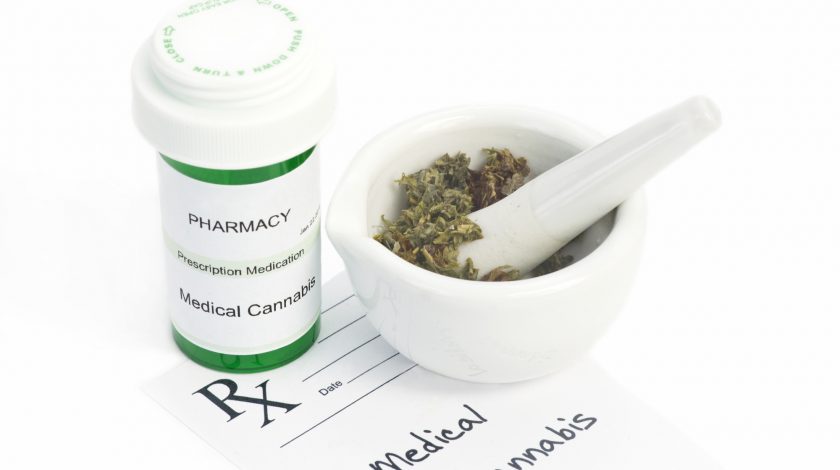Medical marijuana is legal in Washington D.C. and in 30 states. The number of states that have legalized cannabis continues to grow every election year. This is because more people understand the incredible health benefits of the plant.
Scientific research is starting to back up health claims, so it’s become impossible for skeptics to ignore. Some of the most common medical conditions can be treated or cured with marijuana.
If you believe medical marijuana can help relieve your health issues, it’s important to know what diseases and conditions qualify you for a medical marijuana card.
The Most Common Medical Conditions That Qualify for Medical Marijuana
In states with legalized medical marijuana, you can’t expect to walk into a dispensary and buy cannabis. First, you need to qualify for a medical marijuana card so you can legally buy the medicine you need.
Here are the most common medical conditions that qualify people for medical marijuana.
Epilepsy
Patients who suffer from epilepsy can experience sudden seizures. These seizures range from mild to severe. Medical marijuana has the incredible ability to reduce seizures by a significant amount.
CBD is the non-psychoactive compound found in marijuana. It has been approved in most states as a safe way to treat and reduce pediatric seizures so even kids can benefit from cannabis.
Multiple Sclerosis (MS)
Multiple Sclerosis is an unpredictable disease that attacks the central nervous system. MS can lead to severe disability because it can affect both balance and mobility.
While there is no cure for M.S., medical marijuana can treat the symptoms associated with this disease better than most pharmaceutical drugs.
Cannabis has been able to reduce, and even eliminate, many of the common symptoms that MS patients suffer from. Some of these symptoms include pain, inflammation, muscle spasms, insomnia, and overall discomfort.
Cancer
Scientists are still conducting research on whether medical marijuana can actually treat cancer. But we do know cannabis can treat many of the symptoms associated with cancer.
Patients can use medical marijuana to find relief from severe nausea, chronic pain, and appetite loss.
Cannabis is also helpful to those patients who are going through chemotherapy. Chemotherapy causes extreme nausea and loss of appetite, which medical marijuana can help reduce.
HIV/AIDS
There is no known cure for AIDS, but medical marijuana can treat some of the terrible symptoms associated with the disease.
Cannabis can give patients relief from extreme nausea, fatigue, chronic pain, negative mood patterns, and loss of appetite. It can also help reduce side effects caused by other prescription drugs used to treat HIV/AIDS.
Glaucoma
Glaucoma is an eye disease that affects the optic nerve over time, causing a reduction in peripheral vision. If glaucoma continues to go untreated, it can lead to blindness.
To combat glaucoma, a patient must lower the intraocular pressure (IOP). This is because too much pressure in the eye contributes to glaucoma.
Medical marijuana, when smoked, can lower IOP levels for a few hours in patients with glaucoma. This means cannabis can be an effective short-term treatment for glaucoma patients.
In order for people to treat their glaucoma with cannabis, they would need to smoke medical marijuana throughout the day. Otherwise, it wouldn’t be effective in keeping their IOP levels low enough.
Nausea
Nausea can be a daily occurrence in people who suffer from any number of diseases or conditions. It can happen completely out of the blue or during stressful events.
Nausea may sound like a mild condition, but it can become so severe that people are no longer able to eat. This can prevent people from living normal lives and participating in daily tasks or activities.
Medical marijuana can be an incredible medicine for alleviating nausea in people. You can use marijuana by smoking, vaping, or eating edibles to help reduce or eliminate nausea.
Chronic Pain
According to data from the National Health Survey, over 11% of Americans suffer from chronic pain. Chronic pain is often treated with dangerous and addicting pharmaceuticals that can cause more damage than good to patients.
Research has shown that medical marijuana is a safe alternative to treating chronic pain. Cannabis is not physically addictive and does not cause additional damage to your body.
Post-Traumatic Stress Disorder (PTSD)
PTSD causes severe anxiety, panic attacks, drastic mood changes, and frequent sleep disturbances. It is a type of anxiety disorder that comes as a result of someone experiencing a traumatic event.
Cannabis with high levels of CBD can help relieve patients of anxiety. It also helps reduce sleep disturbances and nightmares associated with PTSD.
Medical marijuana cannot cure PTSD. However, it is a great tool to use in minimizing some of the severe side effects. It can work great in conjunction with therapy and other medications to treat PTSD.
Neurodegenerative Diseases
One of the most incredible health benefits of medical marijuana is its ability to help improve cognitive function, memory, mobility, and can reduce spasticity.
This means cannabis can help treat patients who suffer from different neurodegenerative diseases. These diseases include ALS, Alzheimer’s disease, Parkinson’s disease, and Huntington’s disease.
For More Information
There is still needs to be a ton of research on the medicinal benefits of marijuana. But we already know it can be helpful to several different diseases and conditions.
If you have one of these most common medical conditions, you should qualify for a medical marijuana card.
For more information on ways to get high legally, be sure to check out our blog!









